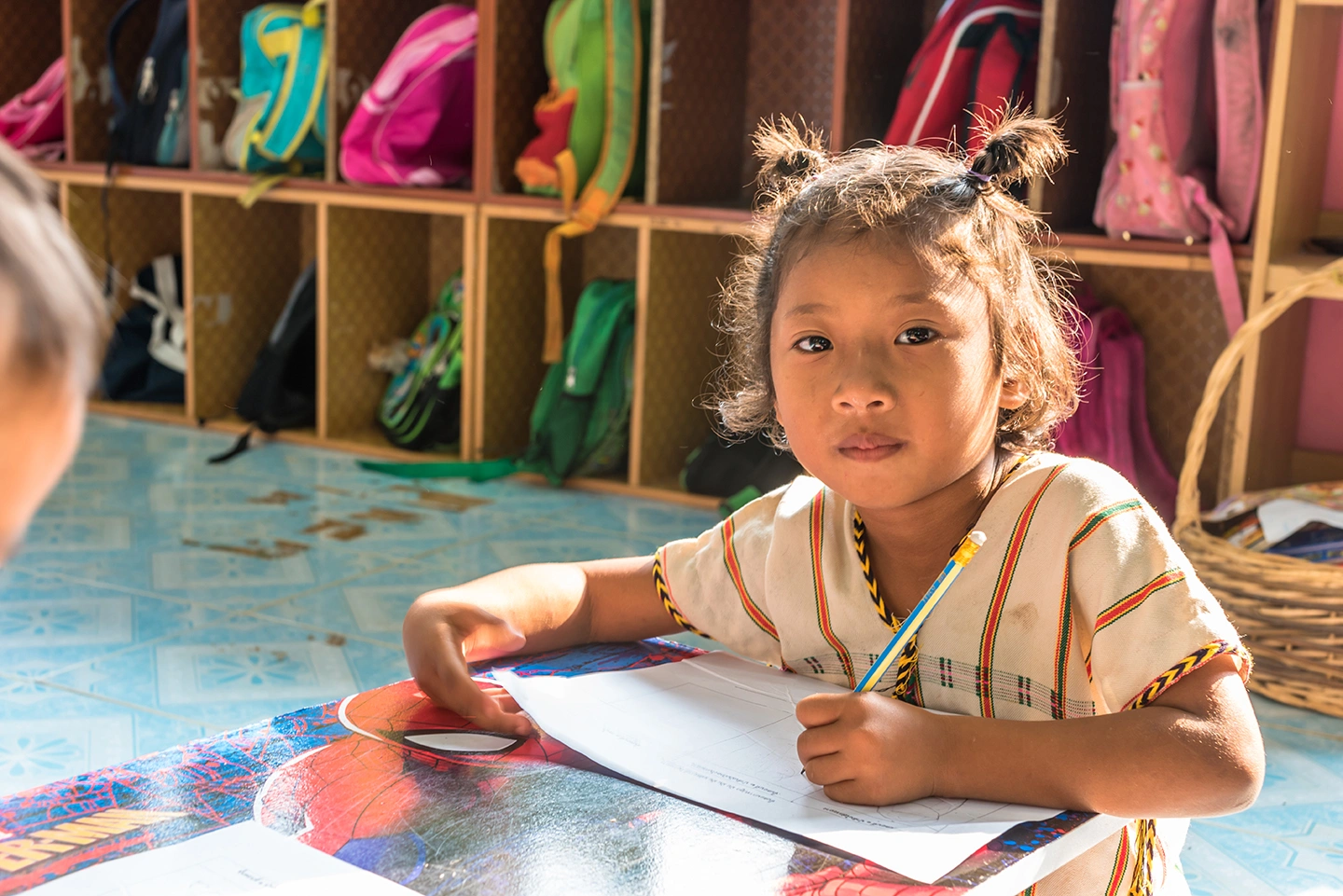
Supporting the advancement of girls’ education
Research 7 Mar 2024 6 minute readACER is working with partners to advance girls’ and women’s education in the ASEAN region.
Investing in girls’ education can transform lives and shape the future of communities and countries. That is why ACER has entered a new partnership through the ASEAN-UK Supporting the Advancement of Girls’ Education (SAGE) Programme to combat gender disparities in education in the ASEAN region.
The 5-year ASEAN-UK SAGE Programme aims to support ASEAN member states to develop effective policies and programs that improve foundational learning and tackle constraints limiting the achievement of girls, women and marginalised groups.
Significant progress has been made across the ASEAN region, but it has some of the highest levels of disparity in educational outcomes in the world with large numbers of out-of-school girls and marginalised children and youth. While around 80% of students complete primary school in Cambodia, Myanmar, Lao PDR and Timor-Leste, rates fall to below 50% in lower-secondary. The situation gets worse in upper-secondary, with 50% of students completing secondary school in Timor-Leste and only to 20 to 30% in Cambodia, Myanmar and Lao PDR.
For those in school, only 1 in 3 children in Grade 5 in the 6 countries participating in the Southeast Asian Primary Learning Metrics (SEA-PLM) are performing at the levels expected in early primary.
Girls and women in the ASEAN region, particularly those who face overlapping areas of disadvantage, continue to struggle to realise their full potential. In the education sector, gender equity initiatives recognise that girls and women may have different needs, challenges and circumstances that require targeted approaches to ensure fairness and equality in education outcomes.
Ongoing investment in targeted girls’ education initiatives is needed to ensure they are included in quality education and that this translates into better work and life outcomes – not only for individuals, but to their families, communities and the next generation. These initiatives can also improve safety and wellbeing, and help reduce gender-based violence and discrimination.
A pioneering initiative of the ASEAN-UK Plan of Action (2022-2026), the ASEAN-UK SAGE Programme emerged from the United Kingdom’s official Dialogue Partner status with ASEAN in 2021. It is co-led by the British Council and the Southeast Asian Ministers’ of Education Organization (SEAMEO) Secretariat and delivered by ACER and EdTech Hub.
The ASEAN-UK SAGE Programme supports the Initiative for ASEAN Integration, which aims to narrow the development gap between the first 6 ASEAN members (Brunei Darussalam, Indonesia, Malaysia, the Philippines, Singapore and Thailand – ASEAN-6) and the 4 newer members (Cambodia, Lao PDR, Myanmar and Viet Nam – CLMV). Timor-Leste, who is currently an observer and the next country on the pathway to ASEAN accession, is also included.
Through the ASEAN-UK SAGE Programme, ACER will focus on improving data collection and analysis capability, promoting regional cooperation and data sharing, and developing more targeted evidence-based policy initiatives to support girls, women and marginalised groups to close the development gap.
Our partnership through the ASEAN-UK SAGE Programme is part of ACER’s ongoing efforts to drive quality and equity in learning in Southeast Asia. We use evidence-based research to advocate for equity in learning for all children, particularly the most marginalised. Our goal is to transform learning systems so that everyone can succeed.
In the first phase, ACER will develop an innovative approach to help address learning poverty in the region. Our research will focus on 3 critical areas that form pillars for the ASEAN-UK SAGE Programme:
- strengthening foundational learning for boys and girls
- engaging out-of-school girls and marginalised groups
- breaking down gender barriers to basic digital skills for employment.
Working together with partners to identify evidence-based initiatives that respond to the unique challenges of girls and women will have a far-reaching impact on individuals, communities, and the region.